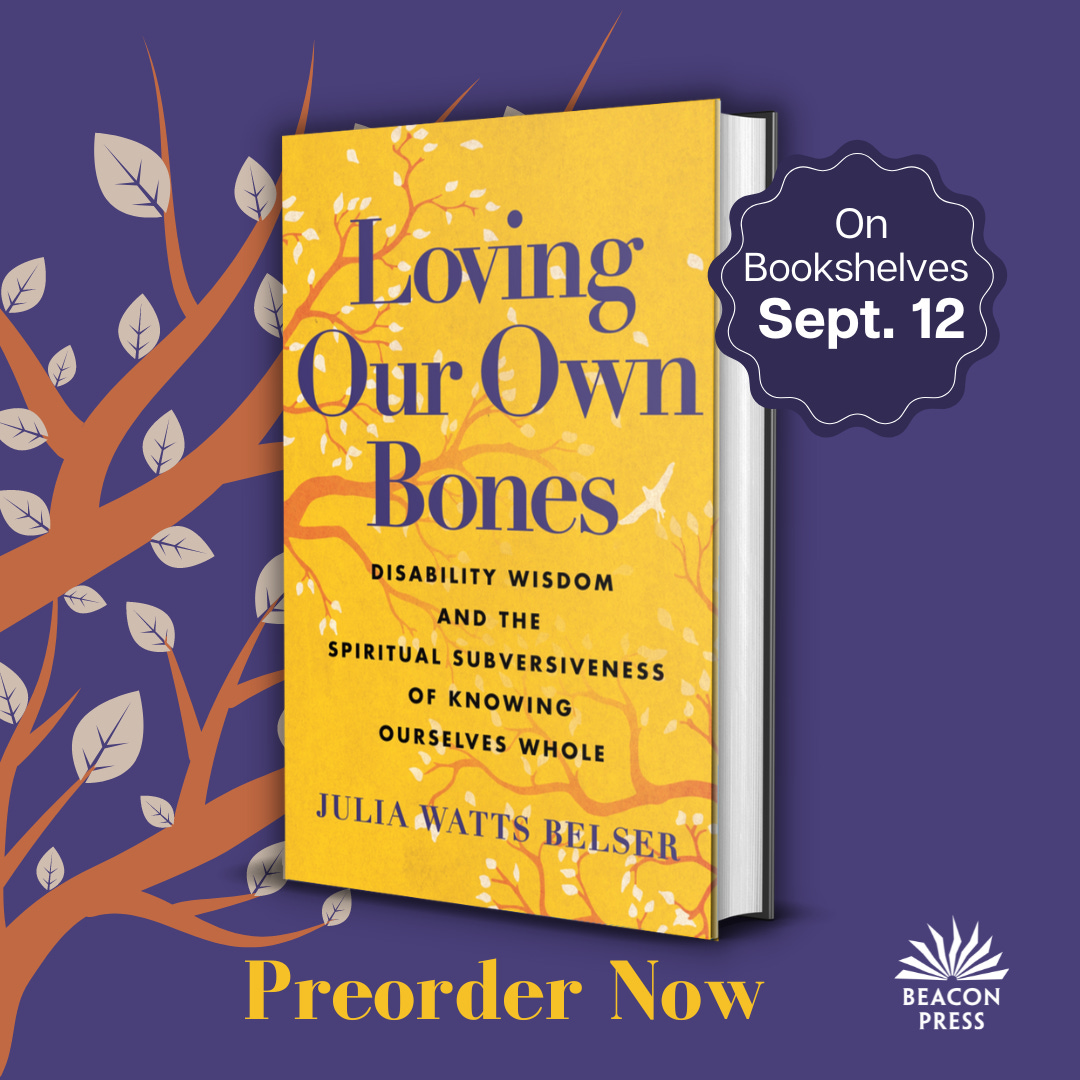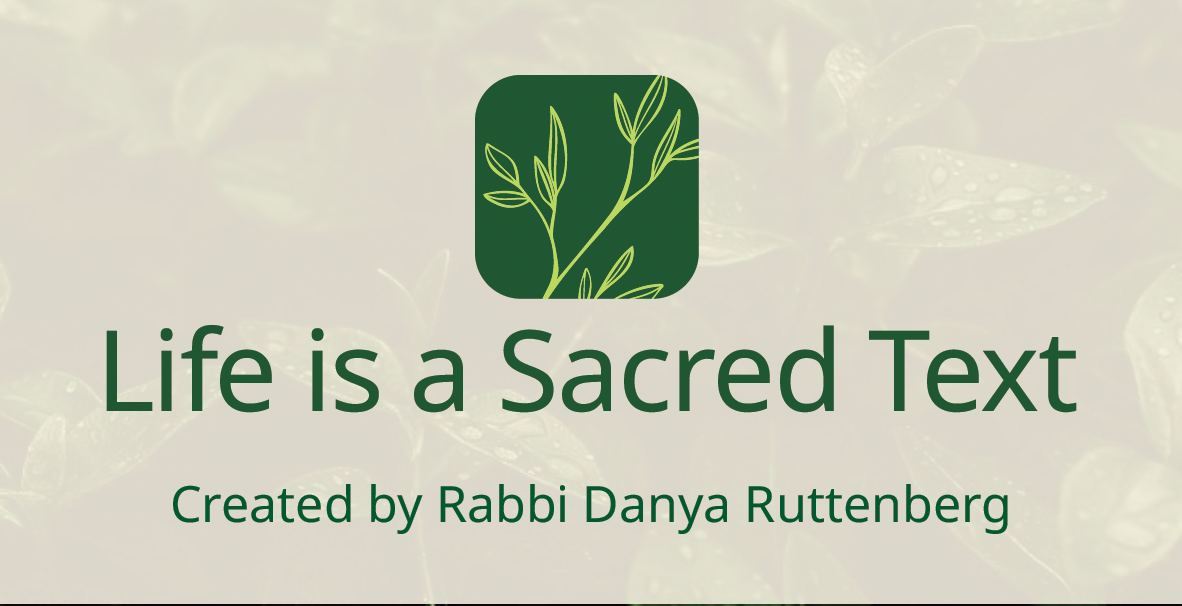Guest Post: Staring Down Ableism
How We Talk About Bodies and Blemishes
This week we get to Leviticus 21—more specifically, to 21:16-24, which begins:
God spoke further to Moses: Speak to Aaron and say: No man of your offspring throughout the ages who has a
Ugh. The word is “defect”
shall be qualified to offer the food of his God.
It then goes down a list of disqualifying conditions—some of which are still highly stigmatized still today.
What are we to make of this?? Fortunately, we have Rabbi Dr. Julia Watts Belser, author of the exquisite forthcoming LOVING OUR OWN BONES: DISABILITY WISDOM AND THE SPIRITUAL SUBVERSIVENESS OF LOVING OURSELVES WHOLE to show us the way.
I’m thrilled to share this ADVANCE PREVIEW!! adapted excerpt of the book, which isn’t out until September 12th—and to encourage you to get this Torah commentary/ memoir/ call to a new future for all of us.
And as a reminder: To subscribe and get missives twice a week, and to support the labor that goes in to this project, go here (As always, access to money shouldn’t be a gatekeeper; email lifeisasacredtext@gmail.com for a hookup if you’d like to be part of the inner sanctum but paying isn’t for you right now. I’m delighted to give away subscriptions!)
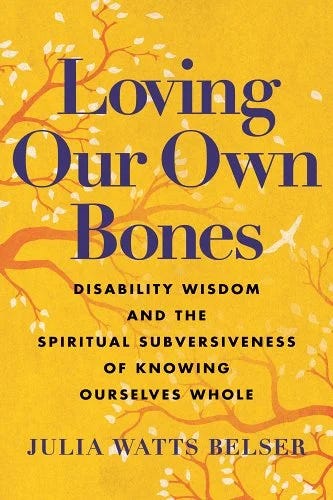
Staring Down Ableism: How We Talk About Bodies and Blemishes
by Rabbi Dr. Julia Watts Belser
In Leviticus 21:16, God tells Moses that any priest whose body has a “defect” shall not be allowed to come before the altar to offer sacrifice. It’s a passage that has always hit hard, a passage that feels like it echoes some of the worst qualities of our own contemporary culture. We live in a world that passes judgment on our bodies, that’s quick to tell us all the ways we fail to measure up.
As a wheelchair user, I’m used to people plying me with questions. Strangers on the street want to know what’s wrong with me, or ask if I’ll ever walk again. Everywhere I go, my body gets assessed and found wanting.
It isn’t just disabled folks. Queer and trans people, women, people of color, fat people—so many of us face judgment on the basis of our bodies. So while Leviticus 21 hits hard against people with disabilities, it’s a striking example of the way ableism can hurt us all.
Over the years, I’ve heard countless rabbis and religious readers grapple with this passage, trying to find a way to blunt the harm of these verses and the exclusion they impose, to explain away the Torah’s choice to bar disabled priests from fulfilling their most sacred charge. It’s a well-intentioned move.
But honestly? It often feels like salt in the wound.
I don’t want to paper over the pain of this passage.
I don’t want us to make nice with these words.
I prefer to face Leviticus 21 as a powerful and disturbing text: one that makes visible the dynamics by which certain bodies are marked as inferior.
I take these biblical words as a visceral reminder of the brutal power of ableism.
Each time we read them, I want us to hear them as a sacred call to confront the harm and name the violence. I want us to hear them as a challenge—to take up the long, hard work of actually making amends.
The Torah itself gives no reason for barring priests with a blemish from serving at the altar. Biblical scholars Jeremy Schipper and Jeffrey Stackert have argued convincingly that Leviticus portrays God as disturbed by certain kinds of physical difference—that the Torah’s God likes bodies to be symmetrical, to line up nice and neat.
Now, I have no way to know how God judges beauty or finds pleasure in this world.
But I take it as absolute bedrock that God loves disabled folk.
I know in my bones that God relishes the presence of sick, queer, mad, Deaf, and disabled people on this earth. God cherishes us fiercely.
The God I know does not share this human fascination with standard-sized bodies, all lined up in tidy little rows.
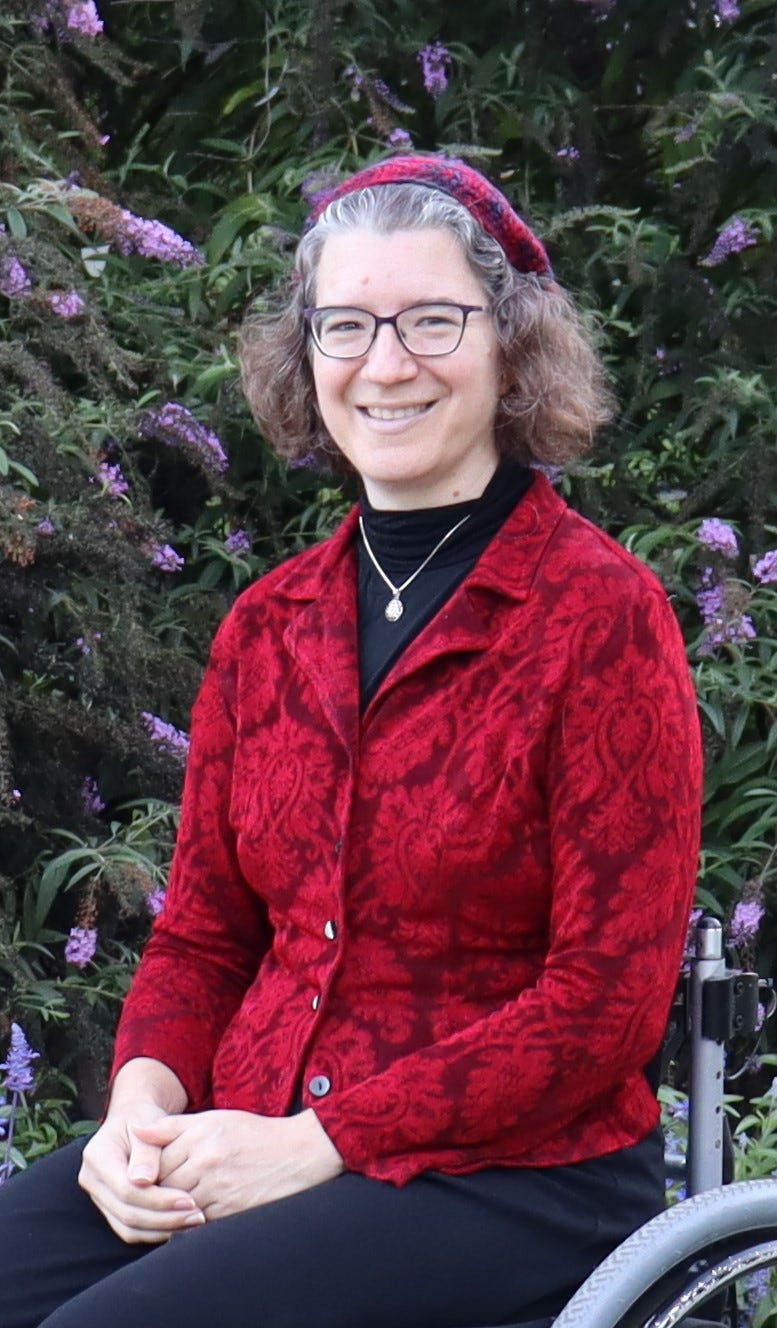
The God I know has made a world brimming over with difference, has fashioned minds and limbs that unfold in their own particular ways.
The God I know has chosen for variation: sometimes minute and almost imperceptible, sometimes bold and brash and beautiful in their uniqueness.
I flat out don’t believe that Leviticus 21 tells the truth about God’s own desires. But I do believe it tells us quite a lot about how humans judge each other—and how quick we are to press our prejudices onto God.
Maimonides come to a similar conclusion in his Guide for the Perplexed, when he writes about the meaning of this commandment. He can’t abide the thought that God actually cares about the prettiness of a priestly face. Instead, he concludes that the Torah includes these commands because of people’s own propensity to judge each other. God wants the Temple to be held in high esteem by all, so God enacts these rules to make sure no one disparages the holy place or the priests who serve there.
The Mishnah likewise suggests that the disabled priest’s exclusion is a nod to human nature. It aims to lay out law for the synagogue—to determine who is allowed to raise their hands, stand before the congregation, and recite the priestly blessing. The Mishnah narrows the list of biblical blemishes substantially, focusing solely on the most salient quality—the form of a priest’s hands. Mishnah Megillah 4:7 reads:
A priest whose hands are blemished may not lift up his hands. Rabbi Yehudah says: Also one whose hands are stained by dye may not lift up his hands, because the people might gaze at him. (Mishnah Megillah 4:7)
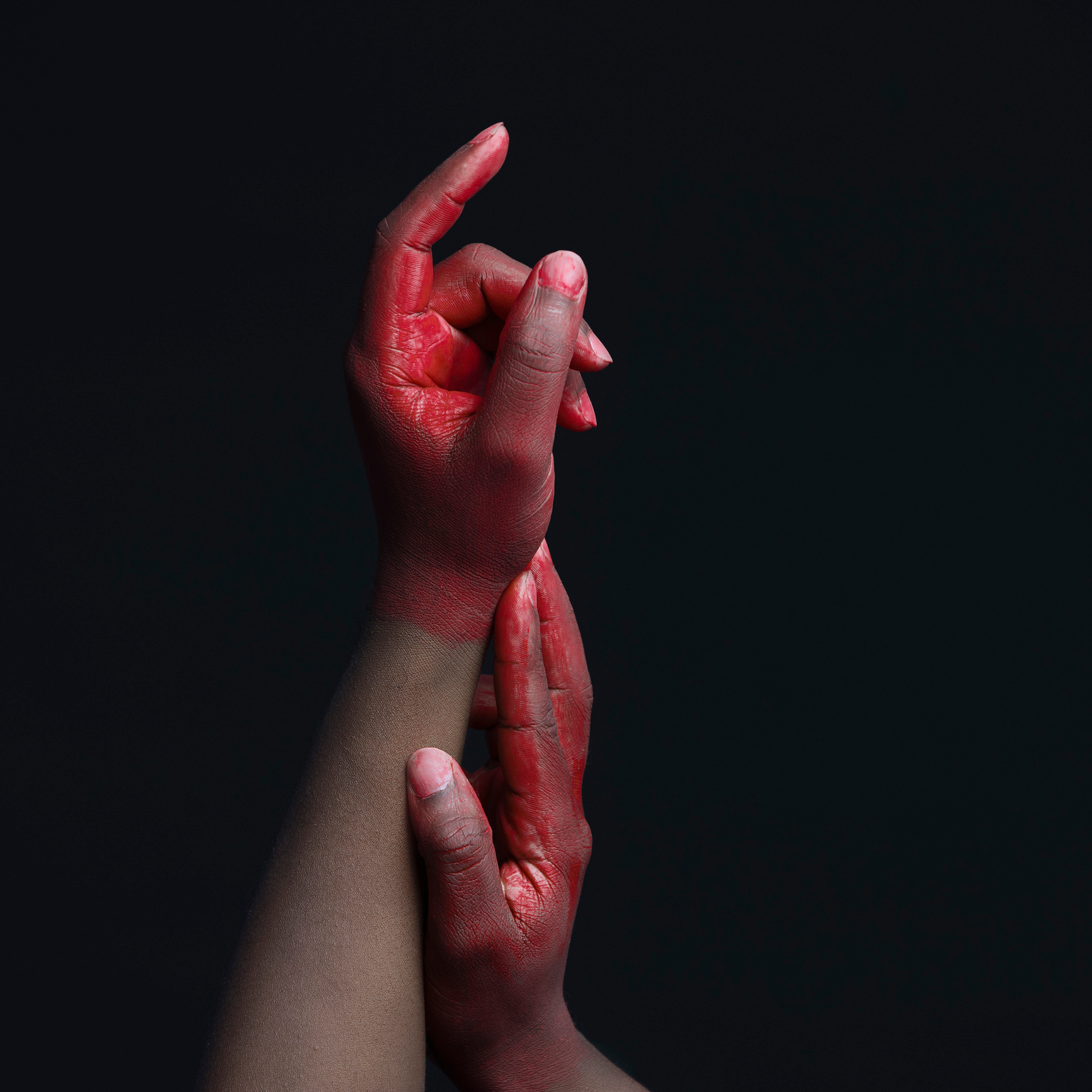
There’s a powerful seed of Torah here, about the danger of the stare. The Mishnah makes plain that there’s nothing physical that prevents the priest from performing the gestures of blessing.
The problem lies in the eye of the beholder.
Rabbi Yehudah fears the congregation will get distracted by the sight of unusual hands. They’ll stop and stare—and miss the full force of the blessing.
This is a passage that haunts me, that leaves me longing for all that could have been. This mishnah could have been a moment to check the force of the nondisabled gaze. Rabbi Yehudah might have laid out an obligation for all of us to manage our own mindfulness, to focus our attention on the blessing. Instead, faced with the dilemma of distraction?
The Mishnah solves the problem by making the disabled priest disappear.
It’s a common cultural move. Consider, for example, how rabbinic law often responds to women. Like many other ancient and modern writers, the rabbis are concerned about the way that sexual desire can be a disruptive force, particularly when it comes to male self-control.
But to address that disruption? Rabbinic culture imposes limits on women’s presence—constraining our movement, our actions, our very voice. Rather than expecting men to manage their desires, the rabbis neutralize the threat by removing women from the scene.
So too with disability. The Mishnah positions the disabled body as a disruptive risk, as a sight that disturbs the nondisabled gaze.
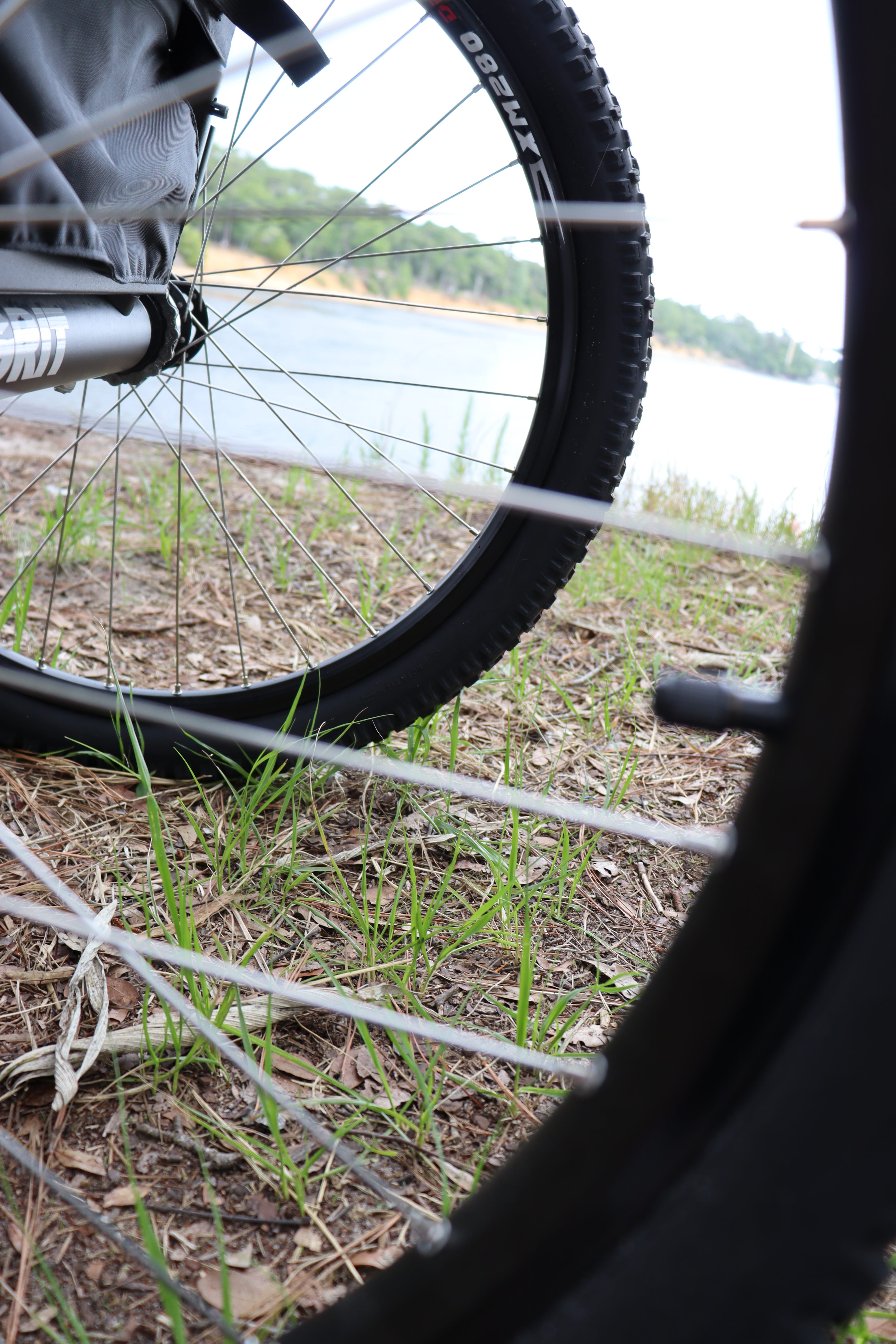
A few centuries later, the Babylonian Talmud (Megillah 24b) takes up the Mishnah’s teaching—and lays out a legal principle that remains influential to this day. It considers three examples, three situations where a priest who should have been disqualified from blessing still “lifted up his hands” to bless the congregation. How does it reconcile the difference? The Talmud concludes that if a person is well-known in a particular town or if the condition of his hands is commonplace, he is permitted to bless.
The Talmud affirms the Mishnah’s insight that the true problem is not the disabled body, but the community’s own gaze.
But where the Mishnah used that insight to justify exclusion, the Bavli offers a more inclusive gesture: Once a person becomes known, he is not prohibited from offering the blessing. Familiarity defuses the stare.
It’s a powerful teaching, one that defangs the force of the Torah’s original prohibition. But I’ll confess: it still leaves me uneasy.
Here’s why: If we follow the principle of familiarity, then an unconventional body becomes acceptable when it no longer startles us. Disabled people—or anyone else who gets marked as outside the norm—only have the right to lead when we no longer stand out as unusual.
But who bears the burden of becoming familiar? All too often, it’s the disabled body that shoulders the obligation to embrace normativity. There are a thousand ways disabled folks try to make ourselves familiar, to make ourselves more palatable to the nondisabled gaze. We learn to pass, to shear away distinctiveness, to disavow difference. I’m thinking of all of us who’ve learned to hide our limp, even though it costs us pain. I hear the choice to cover Autistic sensibilities, to forgo the pleasure of a stim because nondisabled people treat it with disdain. I hear the pressure to train our tongues away from a stutter, the expectation that we’ll have to veil the full force of our depression or our chronic pain.
I hear the expectation that we disabled people tame our differences, that we present only the most palatable version of ourselves for public view.
It doesn’t have to be like this.
We could approach familiarity differently. We could insist that the obligation to change lies with the community, rather than the individual. I want religious communities to take on the weight of this obligation. I want our synagogues and institutions to grapple with the force of this command:
To become familiar with people whose differences strike us as strange, whose bodies or minds strike us as undesirable.
That would start to shift the burden back where it belongs.
But even here, we must be careful. It’s not enough to “welcome” difference while expecting communal spaces to remain unchanged.
To undo ableism and begin to repair its long legacy of harm will require deep work within our communities.
It calls us to transform the narrow notions of propriety and decorum we impose upon our sacred spaces.
It calls us to shift who holds power, who offers the blessing.
It calls us to craft sacred spaces that honor the dignity of disabled people’s lives.
It calls us to build a world where each of us are wanted, where all our bodies are beloved.
Adapted excerpt from Loving Our Own Bones: Disability Wisdom and the Spiritual Subversiveness of Knowing Ourselves Whole by Julia Watts Belser (Beacon Press, 2023). Reprinted with permission from Beacon Press.
Preorder LOVING OUR OWN BONES here:
